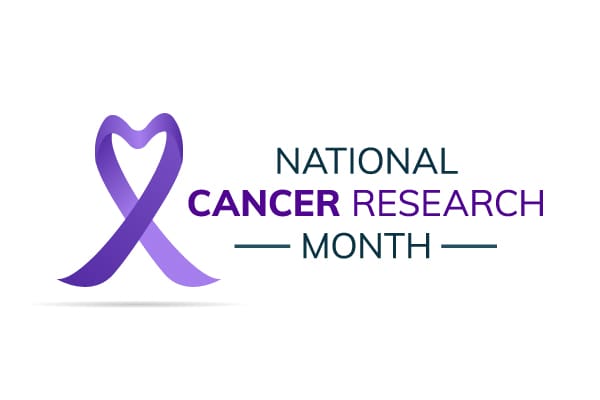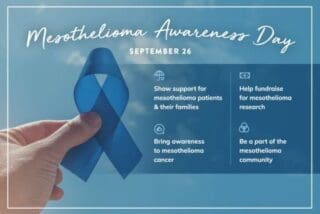
The month of May is National Cancer Research Month, which the nonprofit American Association for Cancer Research (AACR) started and supports. Cancers, like mesothelioma, impact millions of people around the world. Many people know a loved one who has battled cancer.
Research is one of the most valuable tools in the fight against cancer. Some research focuses on finding a cure for cancer. But it also extends to other important efforts in cancer treatment. These efforts include developing better diagnostic tools, prevention methods and more effective treatments. Increasing awareness for cancer research may lead to important medical advances that can help millions of people.
How Does Cancer Research Help?
While the ultimate goal is to find a cure for cancer, research also addresses other aspects of the disease. There are more than 100 types of cancer, and each type requires different treatments. Research initiatives bring scientists, doctors and medical professionals, cancer centers and patients together to work towards better treatments and a cure. Because of advances in cancer research, more than 18 million people in the United States, and more than 32 million people worldwide are cancer survivors.
“Cancer research means making an impact on a greater number of lives…. Through research you can take care of people who you never even met. Cancer research can create a healthier world with less suffering and more joy.”
Dr. Raja Flores, Chief of Thoracic Surgery at Mount Sinai
For rarer cancers, like mesothelioma, research is especially critical. Because these cancers affect smaller numbers of people, support or funding may need more attention. About 3,000 new malignant mesothelioma cases are diagnosed in the U.S. each year. Treatment for this type of cancer is generally more specialized.
In recent years, research has led to treatment advances that have improved life expectancies and prognoses for many mesothelioma patients. Clinical trials can give people access to new treatments and mesothelioma experts. These can be vital for improving patient outlook and quality of life.
Mesothelioma research has led to new treatments like gene therapy, immunotherapy and photodynamic therapy. These promising treatments may extend life expectancy and reduce symptoms in some patients. Depending on their diagnoses, treatment advances may offer patients more care options.
What Are Some Recent Mesothelioma Cancer Research Advances?
In recent years, there have been some significant advances in mesothelioma research. New immunotherapy drugs and treatment combinations have shown promise for treating pleural mesothelioma.
In 2020, the FDA approved the first drug regimen for treating mesothelioma since 2004. This combination of two immunotherapy drugs, Opdivo® (nivolumab) and Yervoy® (ipilimumab), is now a first-line treatment for patients with inoperable pleural mesothelioma.
In a 2022 study, patients treated with Opdivo+Yervoy reported better symptom management. Many also noted improved health and quality of life when compared to chemotherapy.
Cancer Research Works to Better Prospects for Patients
As technology advances and knowledge about cancer grows, so do treatment options for patients. Some cancer treatments, such as surgery and chemotherapy, are standard now. Researchers are also developing and testing other emerging methods.
Some patients may be interested in alternative treatments and emerging therapies. Clinical trials and studies are one way patients can access cutting-edge treatments.
Advancements in cancer research may help extend some patients’ life expectancies and improve day-to-day life. Treatment advances may also increase eligibility for other treatments like surgery. Continued mesothelioma research may lead to faster and more accurate diagnostic techniques. Research may also lead to preventative measures for cancer, and one day, a cure for mesothelioma and other cancers.
How to Get Involved During National Cancer Research Month
There are many ways to support and get involved in National Cancer Research Month. Awareness, funding and advocacy are vital to continuing life-saving cancer research.
You can help support cancer research by:
- Donating to a reputable cancer research organization, like the AACR
- Participating in active clinical trials or studies, if eligible
- Sharing your experiences and support for cancer research in your community. You can also connect with us or share your story online. This year’s hashtag is #NCRM23
- Volunteering with advocacy groups at fundraising or awareness events or at local cancer centers and hospitals
Cancer research is essential to the hope of a cancer-free future. New and improved treatments have already made a difference for millions of cancer patients and their families. Together we can support this necessary work and build a better future.






